The noise from the past three weeks will have left the government in no doubt about how the farming sector perceives it.
But today’s events in London should ensure everyone in the country knows exactly how farmers feel.
Many, quite frankly, hate this (still) new Labour government with a passion. And the issues of a sector representing a tiny proportion of the wider population have rapidly become the biggest political challenge so far for Keir Starmer’s government, a so-called ‘wedge issue’ that has emboldened his political opponents.
Farmers, of course, descended on the capital in protest at hugely controversial measures designed to alter eligibility around Inheritance Tax, outlined in chancellor Rachel Reeves’ first budget on 30 October.
The move, which is expected to raise a maximum of £500m for the exchequer, is part of a bid to raise a total of £40bn in taxes and fill a “£22bn black hole” Labour says was left by the previous Tory government.
Reeves’ plan is to cut the existing rate of Agricultural Property Relief (APR) and Business Property Relief (BPR) from the current 100% to 50% for farms valued above £1m – meaning businesses will pay an effective IHT rate of 20% on assets above the £1m mark, having previously paid nothing at all.
The government stresses only the richest farm businesses and landowners (which it says could be as few as 500) will be affected by the changes, due to a variety of other reliefs available to mitigate the impact of IHT.
Defra secretary Steve Reed reinforced this position in front of an appropriately-timed appearance of the Environment, Food & Rural Affairs Committee this afternoon, as he urged farmers to seek independent tax advice. Many, he added, would be proved “happily wrong” when they found they would not be liable for a huge bill.
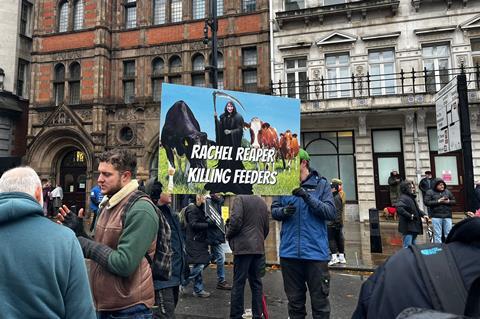
But with the likes of the NFU claiming as many as three quarters of farms could be impacted, coupled with confusion over how the treasury came to its figures and a suggestion its data is flawed, the issue has energised an already beleaguered sector – one that’s had to contend with record inflation, tiny profit margins and ongoing labour issues for several years.
Against this backdrop, some 1,800 NFU members turned up to a ‘mass lobby’ of MPs in Westminster today in a bid to pressurise their MPs to then pressurise Reeves into a u-turn on the policy.
Read more:
-
‘We’ll have nothing left’: Emotional reactions from Westminster farmers’ protest
-
Farmer protests kick off in London following ‘stab in the back’ budget
But this number was dwarfed by the 10,000 people who thronged the streets of Whitehall, in a demonstration where emotions were running high, that took aim both at the hated ‘Family Farm Tax’, the lack of consultation around it and the Labour administration itself.
New Tory leader Kemi Badenoch was understandably quick to capitalise on the situation, proclaiming a Conservative government would reverse the IHT policy, while stressing she was “standing shoulder to shoulder” with the farming community.
This was a position Labour rapidly pounced on today, stating the Tories “forced over 12,000 farmers and agricultural businesses out of business”.
It added: “They sold farmers out in trade deals, left them facing spiralling energy bills and failed to spend £300m earmarked for farmers – leaving them out of pocket as the money sat idly in the Treasury’s coffers.”
The likes of the Liberal Democrats have also been quick to capitalise on the issue.
Britain's farmers have been betrayed by the previous Conservative administration and are now being hammered by the new Labour Government.
— Tim Farron (@timfarron) November 19, 2024
Liberal Democrats will continue to lead the fight to defeat these disastrous policies and to stand up for British farmers. pic.twitter.com/TW4HdW0K9X
Many farmers doubtless have a point about the new Labour government not looking out for them, and despite its warm words on ”food security being national security”, it has so far failed to adequately map out its strategy for the sector.
But the prevalence of those espousing more extreme views at the protest should also raise some alarm bells for the wider farming sector.
In addition to populist Reform UK leader Nigel Farage, right-wing commentator Katie Hopkins was also present, as were placards denouncing net zero plans and supporting UKIP, plus straight-up conspiracy theorists hitting out at Covid vaccines, lockdowns and the like – echoing the actions of other farming protests, particularly in Wales, earlier this year.
And many more were calling for more militant action or predicting it would come next, arguing the IHT debate was merely “the straw that broke the camel’s back” after so many years of struggle made worse by poor government policy.
The problem is if the issue continues on its trajectory of becoming politicised – as we saw today – the likelihood of any concessions being made by Labour, particularly in response to its political opponents, could become a distant prospect.
And if Labour doubles down – as it looks like it will – on this policy, we could see more unrest to come.








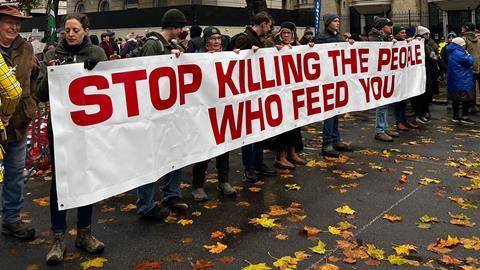




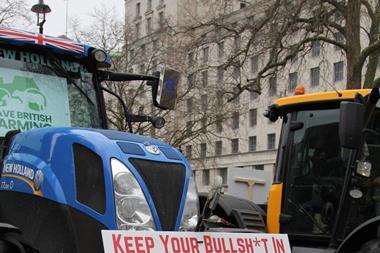
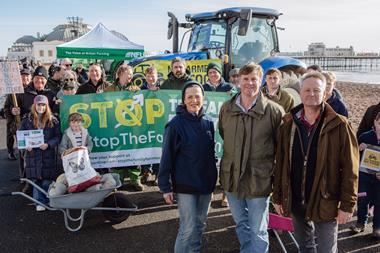
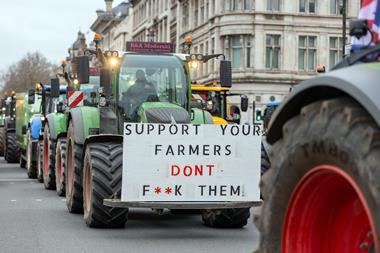

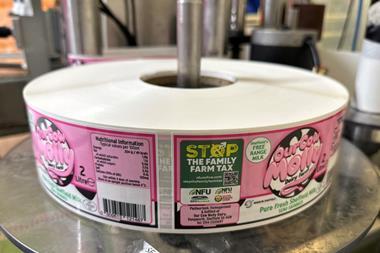
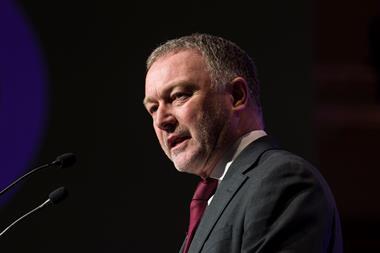






No comments yet